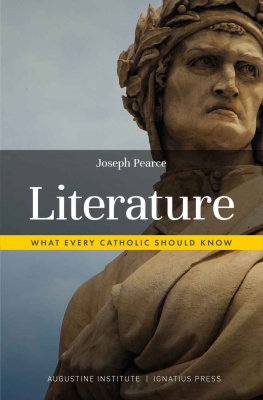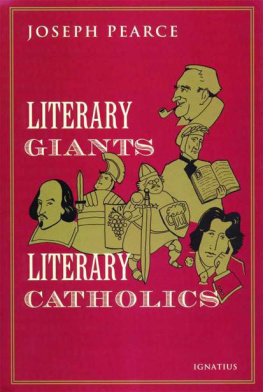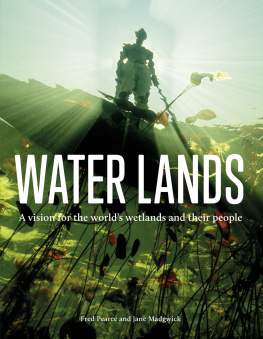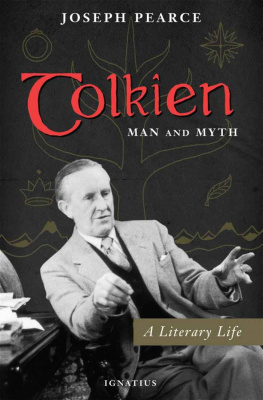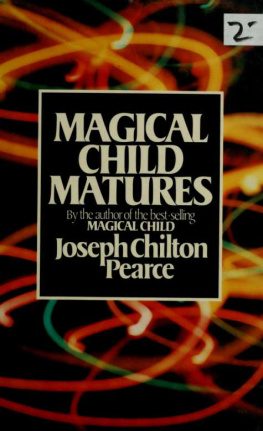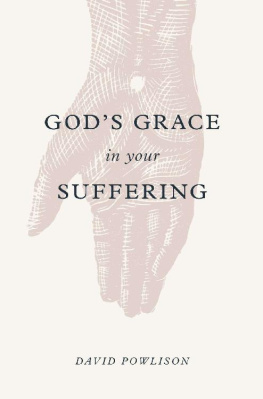Can Biotechnology Abolish Suffering?
by David Pearce
Edited by Magnus Vinding
Published by The Neuroethics Foundation, North Carolina
Copyright 2017, 2018 David Pearce
Table of Contents
Part I: The Abolitionist Project
Part II: Bioethics
Part III: Non-Human Animals
Part IV: Consciousness
Part V: The Sentience Explosion
By Magnus Vinding
The first time I heard of David Pearce was not before late 2013. It was through the Youtube video " PostHuman: An Introduction to Transhumanism ", which features some of Pearces main ideas. My immediate reaction was skeptical. That stuff sounds simplistic! thats not wholly accurate who does this guy think he is?
Nonetheless, the video made me curious and compelled me to seek out more information about the ideas of David Pearce. The deeper I probed into these ideas, the more intrigued I was, and the more important I considered them to be. Let me try to explain why.
First of all, David Pearce focuses on what matters. Particularly, like so many thinkers before him, from Buddha and Mahavira to Schopenhauer and Popper, he focuses on the alleviation of suffering, and views this as humanitys main imperative. As he writes in The Abolitionist Project (echoing Karl Popper): There isn't a moral urgency to maximizing superhappiness in the same way as there is to abolishing suffering. Hence, Pearce is a self-identified negative utilitarian .
But more than just focusing on what is important, Pearce is also uniquely ambitious about it. For Pearce is not content with a mere reduction of suffering. He wants to abolish it completely throughout the living world what he refers to as The Abolitionist Project . This is Pearces raison d'tre .
Yet Pearce's high level of ambition does not end here. Beyond the abolition of suffering, he argues that we should make life even better still, by making sentient beings animated by gradients of (ever greater) bliss. However, the abolition of suffering remains the overriding goal. Everything beyond that is frosting on the cake.
In addition to focusing on the alleviation of suffering, David Pearce is also a unique and important thinker due to his well-considered view of the nature of consciousness, including suffering. In a nutshell: our states of consciousness are, according to Pearce, concrete physical states in our heads. This is hardly an original view. What is original to Pearce, in my opinion, is his level of appreciation of this insight. Sure, most well-informed people would call themselves physicalists and say that they believe in some kind of identity theory as the solution to the mind-body problem. Yet the ability to express such a thin string of words is many light years away from truly appreciating that the entire conscious experience one is having, including all that is "out there", indeed is a concrete physical state residing in one's head. A world-simulation, as Pearce calls it.
I have come to view this world-simulation model of perception as the master key to understanding the philosophy of David Pearce (who himself, it seems to me, considers it so obvious that he often misses its uniqueness and significance). It is the key to understanding his ontology, epistemology, and view of consciousness. The best explanation Pearce has provided of this world-simulation model is arguably found in the section of The Hedonistic Imperative titled Alone Amongst the Zombies and the essay Terminological Note for Philosophers found in this volume (yet perhaps also see his review of David Chalmers The Conscious Mind ) .
This view of the world is also what makes Pearce believe in the possibility of abolishing suffering in all sentient beings. The root of suffering is not something "out there" in the mind-independent world, as our direct realist intuitions might have us believe. Rather, all forms of suffering and all forms of happiness are mediated by concrete structures in our heads. Hence, Pearce contends, abolishing suffering is ultimately an engineering problem all about changing certain physical structures. And in the case of existing sentient life forms, these structures have a genetic basis. Thus, with the right genetic tweaking, Pearce argues, this class of physical structures, i.e. suffering, can be abolished. (This is not to say that Pearce focuses only on the biological causes of suffering as opposed to cultural ones, such as discrimination; rather, he stresses the importance of a twin-track approach that addresses both.)
These are some of the main reasons I consider the ideas of David Pearce to be important, although this brief exposition obviously does no real justice to the importance and uniqueness of these ideas. To get a better sense of that, the reader will have to consult the essays in this volume. These essays are arranged in five parts.
Part I outlines and defends Pearces Abolitionist Project, arguing both for its technological feasibility and moral importance on a wide variety of value systems, as well as outlining how it might happen (see The Reproductive Revolution) and responding to many of the objections against it.
Part II, Bioethics, mostly addresses fundamental issues in moral philosophy, particularly differences between classical and negative utilitarianism.
Part III is about our obligations toward the vast majority of sentient beings on the planet: non-human animals. Those obligations being, in short, that we should stop harming them and start helping them. Beyond outlining a technology-catalyzed road to global veganism (or its ethical invitrotarian equivalent), Pearce also describes how technology might be able to help free-living non-human animals, from insects (see Compassionate Biology) to elephants (A Welfare State for Elephants).
In Part IV, the focus is on consciousness. Here, Pearce presents and defends an original and in his own words bizarre conjecture about the nature of consciousness. A conjecture whose, by most appearances implausible, vindication would have significant implications, one of them being that (non-trivial) digital sentience is impossible. As Pearce readily admits, this is highly speculative stuff.
Finally, in Part V, we find two highly original essays on the technological singularity and the future of intelligence. Here, Pearce provides a critique of the notion of an intelligence explosion in I.J Good, Eliezer Yudkowsky, and Nick Bostroms sense, along with a criticism of what Pearce characterizes as our narrow conception of intelligence. In contrast, Pearce presents the idea of full-spectrum superintelligence, and predicts a future bio-intelligence explosion in which humans recursively improve themselves by editing their biology beyond Darwinian recognition.
The essays in this volume by no means comprise the complete works of David Pearce, but merely what I consider his most important essays to date (and the fault for bad choices in terms of the content of this volume is therefore entirely mine). All of these essays have been published elsewhere, in the HedWeb ecosystem , yet they have not been published in book form. Not until now. It is my hope that with this publication, the work of David Pearce will reach more readers and thereby, most importantly, help create a better future. A future with less suffering.
Deep thanks go to Cynthia Stewart for proofing this volume with impressive speed and enthusiasm, to James Evans for the cover design, and to Tom Richards and Katie Willis for their feedback that greatly helped improve the content of this volume. Lastly, I wish to thank David Pearce for writing these essays, and for his dedication to reducing the suffering of all sentient beings.
Magnus Vinding
Copenhagen
August 2017
Think of your best peak experience. Everyday future life could be better. In 1995, I wrote an online manifesto, The Hedonistic Imperative , which advocates using biotechnology to abolish pain and suffering throughout the living world in favour of gradients of intelligent bliss. The proposal to reprogram the biosphere sounds like science fiction. But in 1998, Swedish-born philosopher Nick Bostrom and I helped set up the World Transhumanist Association (H+) to promote a transhuman agenda. Transhumanists urge the use of technology to overcome our biological limitations. Post-Darwinian life can be founded on the three supers of superintelligence, superlongevity and superhappiness. Transhumanists advocate the well-being of all sentience, including humans, non-human animals, and any future artificial intellects, modified life forms, or other intelligences to which technological and scientific advance may give rise. (The Transhumanist Declaration, 1998, 2009)


